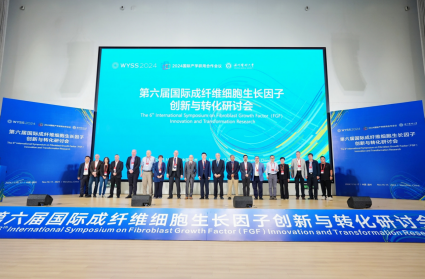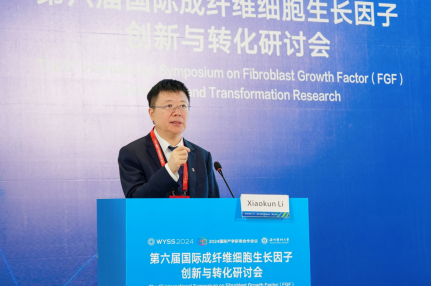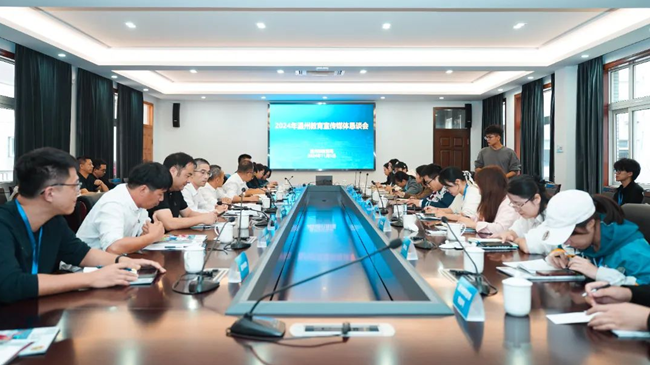The International Fibroblast Growth Factor Symposium was held in Wenzhou
时间:2024-11-19 15:32:10 来源 : DiscoverWenzhou 作者 : Cai Huihui
From November 16th to 17th, the International Fibroblast Growth Factor (FGF) Innovation and Translational Symposium was held at the Chashan Campus of Wenzhou Medical University. The symposium showcased the latest advancements in FGF signaling in life sciences, disease mechanisms, and therapeutic applications, jointly promoting the translation of scientific research into clinical medicine.

The 6th International Symposium on Fibroblast Growth Factor (FGF) Innovation and Translation. Photograph provided by Wenzhou Medical University.
Diversified and international.The symposium brought together nearly 20 international guests from 7 countries, focusing on"FGF and Disease","FGF and Development","FGF and Metabolism","FGF and Stem Cells","FGF and Tumors" and other fields for keynote reports. It provided a rich academic discussion platform for participants, promoting interdisciplinary exchange and cooperation, as well as the clinical application and translation of scientific research results.

Academician Li Xiaokun delivers the keynote speech. Photograph provided by Wenzhou Medical University.
At the forum, Academician Li Xiaokun delivered a keynote report on"Theoretical Innovation and Clinical Translation Research of Growth Factor Drugs",elaborating on the medical value and in-depth research of growth factors. It is understood that Li Xiaokun's team, starting from the study of lizard tail regeneration and human skin self-healing after injury, has cracked the prevention and treatment of difficult-to-heal wounds on the human body surface in China, achieving a breakthrough in the key technologies and industrialization of China's original cell growth factor protein drugs.Now, the team has developed and put into production three types of new drugs of fibroblast growth factor, widely used in the treatment of difficult-to-heal ulcers such as war injuries, burns, and diabetic foot, benefiting more than 80 million patients. In addition, four drugs have been approved for clinical trials, and 45 national invention patents have been obtained.
"Principal Li gave an excellent report, showing the history of the FGF family and its functions in diseases. Wenzhou is one of the leaders in the FGF field, studying the functional mechanisms of FGF and its therapeutic potential, aiming to promote international cooperation, which is very important", said David Ornitz, a famous American biologist and professor at Washington University in St. Louis.
Since 2010, the International Fibroblast Growth Factor Summit has been successfully held for six sessions, receiving enthusiastic support and widespread participation from renowned experts and scholars in the global FGFs/FGFRs research field, attracting more international FGFs research experts to pay attention to and support the International Fibroblast Growth Factor Conference, becoming the top academic event in this field in China.
"The symposium has taught me a lot, and I have learned about the different roles of fibroblast growth factors in various pathologies and normal development, and the quality of these reports at the conference is also very high",said Jos Jonkers, a professor of molecular experimental oncogenetics and cancer therapy at Leiden University in the Netherlands.
In today's globalized world, growth factor research has become a common cause for all of humanity. Academician Li Xiaokun's team, with its cutting-edge scientific research results and core technologies, is leading the future development of the growth factor field, writing a new chapter for building a community with a shared future for mankind. (Cai Huihui)

e3e60620-2bb5-430b-98a1-75fa412e7c64.png)
